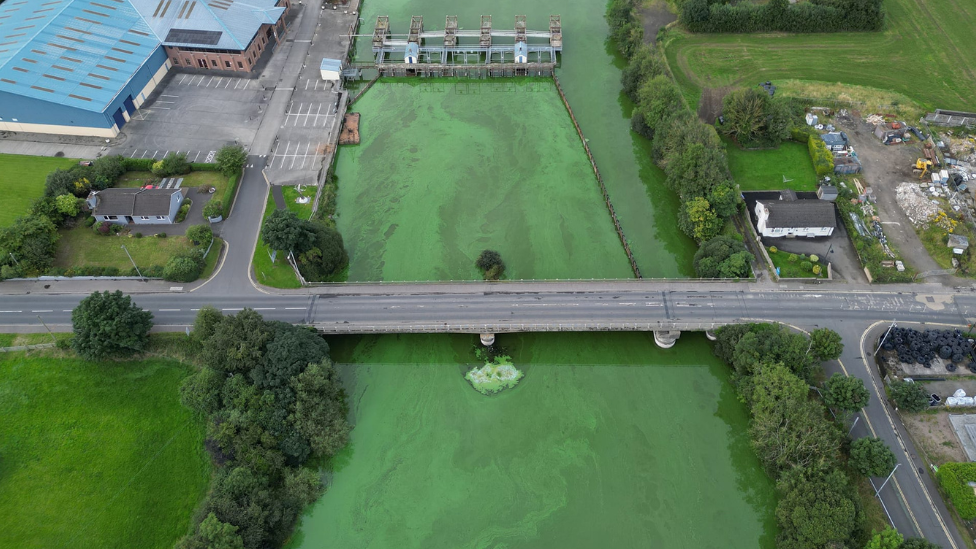Bathing water regulations are out of step - report
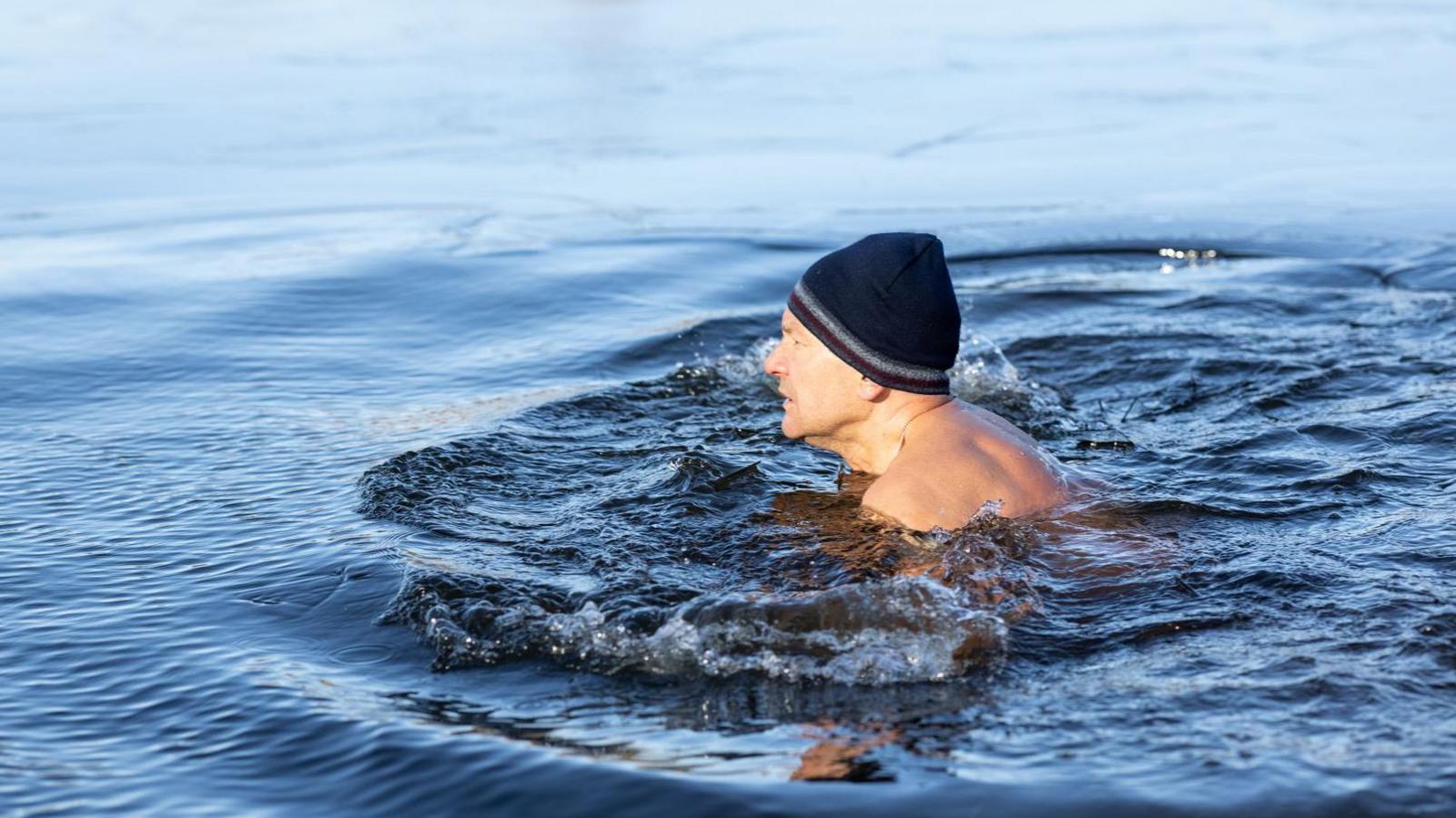
The report said checks did not reflect the year-round nature of swimming
- Published
Regulations to protect people swimming in Northern Ireland's rivers and lakes should be updated, according to the Office for Environmental Protection (OEP).
A new report found requirements have "not kept pace" with the changing ways rivers, lakes and coastal waters are used, and that the public could be better protected.
It said current regulations focus on swimming but future reviews should consider other recreational activities, such as surfing, paddleboarding and wind-surfing.
There is also a focus on a "fixed bathing season," instead of reflecting the year-round nature of the activities.
The report said that although regulations were being followed, they needed to be "updated" and called for the sampling of water quality to be increased.
It has given the Department of Agriculture, Environment and Rural Affairs (Daera) 11 recommendations to update the Bathing Water NI Regulations.

Dame Glenys Stacey said the regulations had led to "significant improvements"
Dame Glenys Stacey, chair of the OEP, said with more people participating in outdoor water pursuits it was even more important to ensure there was no risk to health.
“We have taken an in-depth look at the Bathing Water NI Regulations and found that they have fallen out of step with the needs of today," she said.
"They originate from developments in the 1970s and 1980s and have not kept pace with the evolving ways in which waters are now used."
Dame Glenys said the regulations had led to "significant improvement".
“Nevertheless, the lack of overall improvement in water quality observed in recent years, combined with a number of bathing water sites failing to achieve sufficient or better standards, is a cause for concern and has been widely reported," she said.
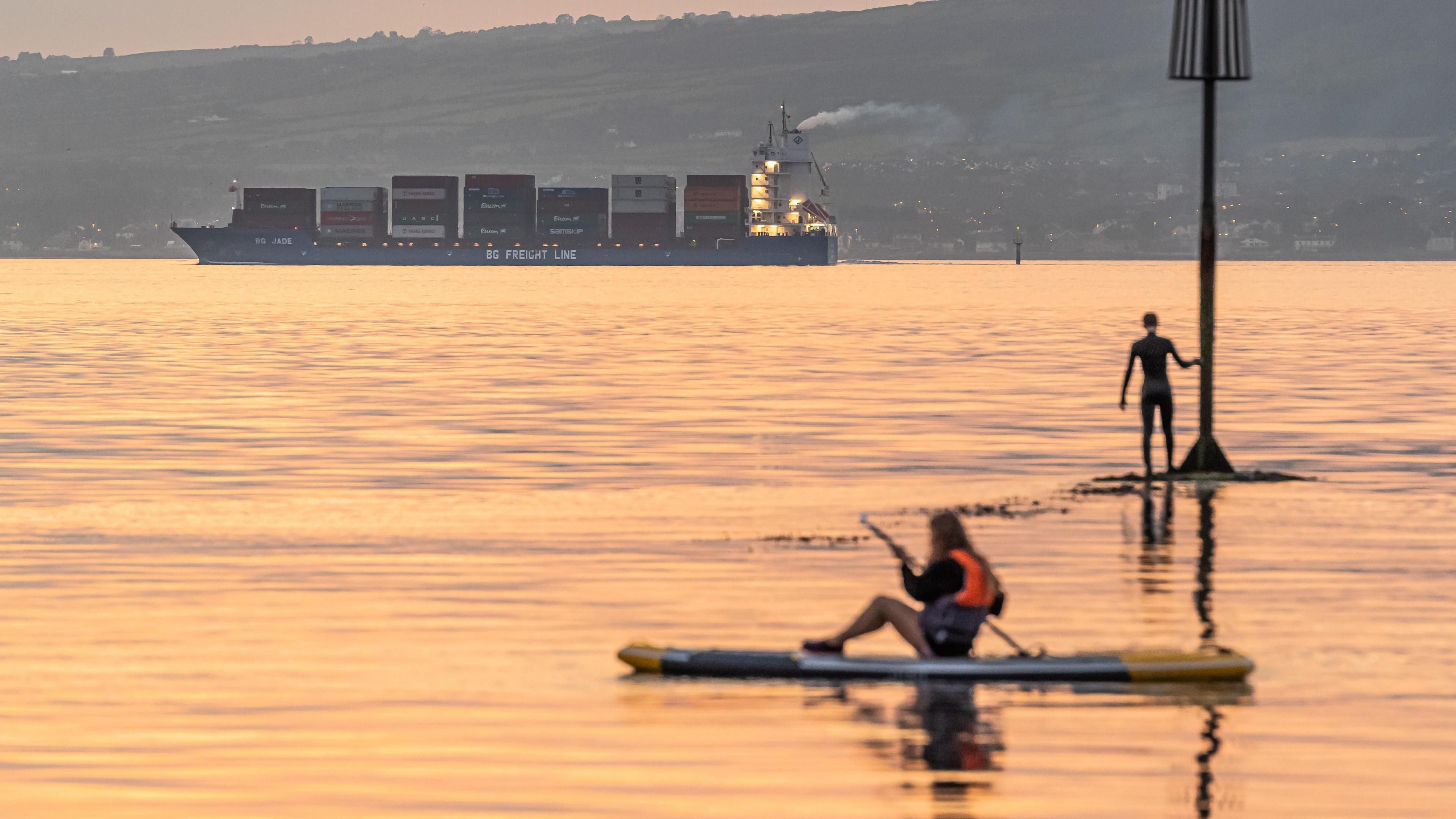
The report called on future reviews to consider activities other than swimming
The recommendations include:
Review the current identification criteria for bathing waters to ensure it covers sites where large numbers of people bathe
Consider options to expand the bathing water season to better match the actual usage
Pursue the further development of short-term pollution risk forecasting systems so that health risks can be better understood and communicated to the public with greater speed, including for inland sites which may be increasingly identified as bathing waters
It comes after a separate OEP report found laws to protect water quality in Northern Ireland are not being implemented as they should be, with targets being missed.
They found this was because of a lack of "site-specific information on measures to meet the required standards, and no clear indication for what overall levels of bathing water quality Daera aims for or expects to achieve".
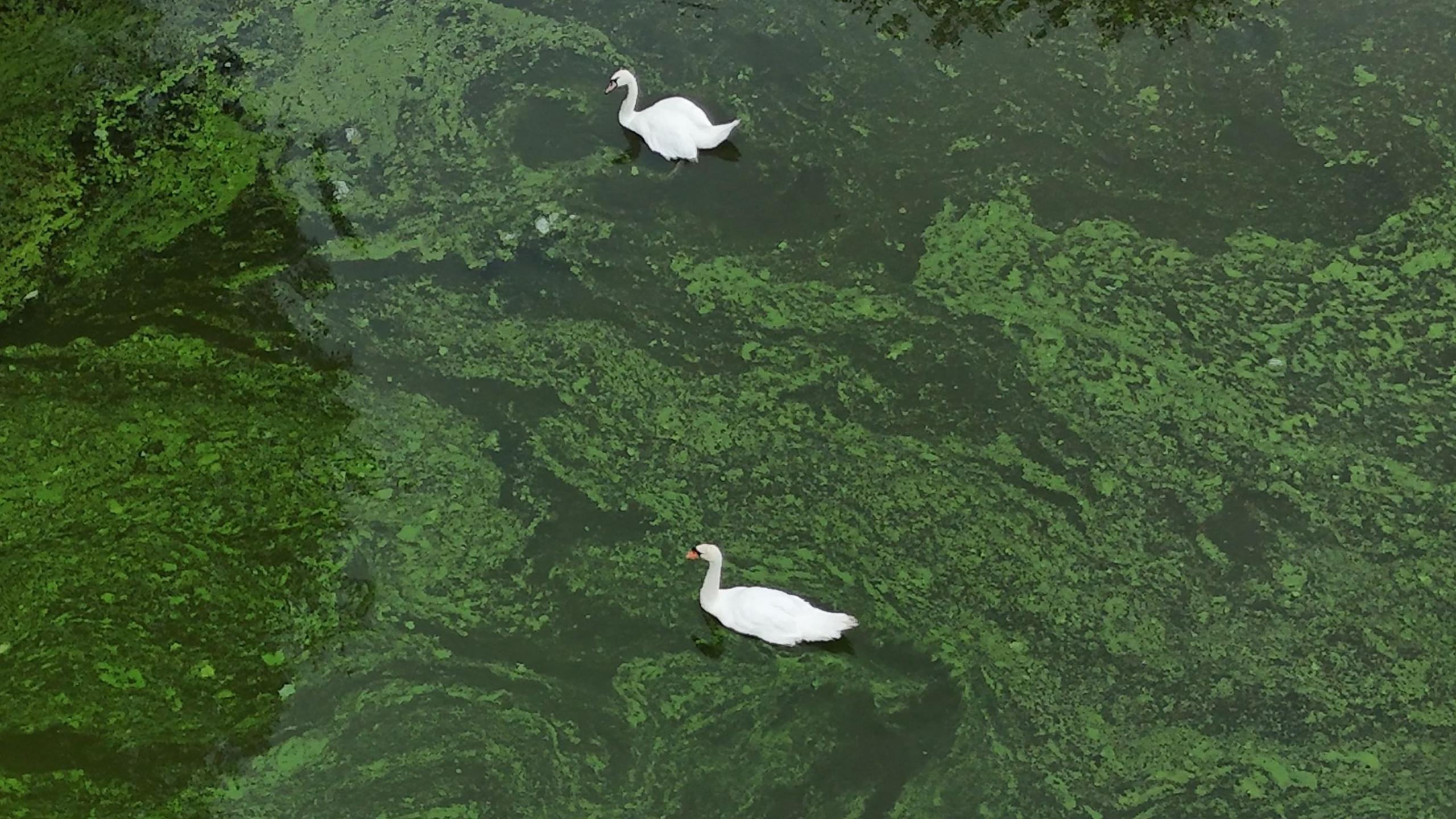
Last year saw the worst bloom of blue-green algae since the mid-1970s
The OEP report also welcomed the executive’s draft programme for government, which commits to addressing the challenges in Lough Neagh, which has been badly affected by blue-green algae.
Agriculture and Environment Minister Andrew Muir welcomed the report, adding that it was a "useful and constructive contribution" to improving bathing water quality.
He said some of the recommendations were already under consideration, such as extending the current bathing season.
Muir said the department was collecting data to inform future policy direction.
"I agree there is more we can do together to improve bathing water quality... we can only protect bathing waters and public health by making sure that appropriate measures are implemented in catchments," he said.
"I recognise that a source-to-sea approach is critical and will work across all sectors to secure improvements in water quality."
Related topics
- Published3 September 2024

- Published22 October 2024
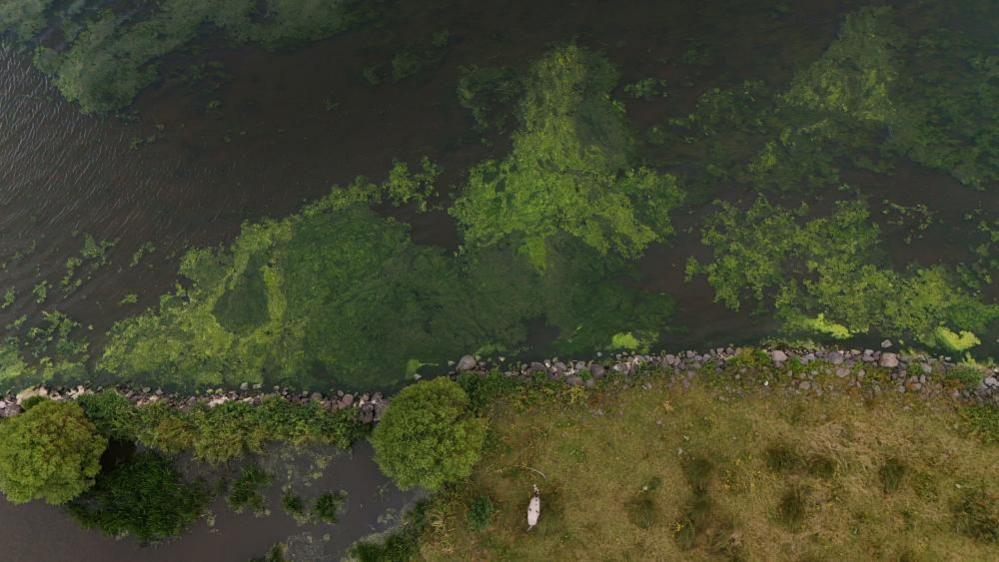
- Published5 August 2024
